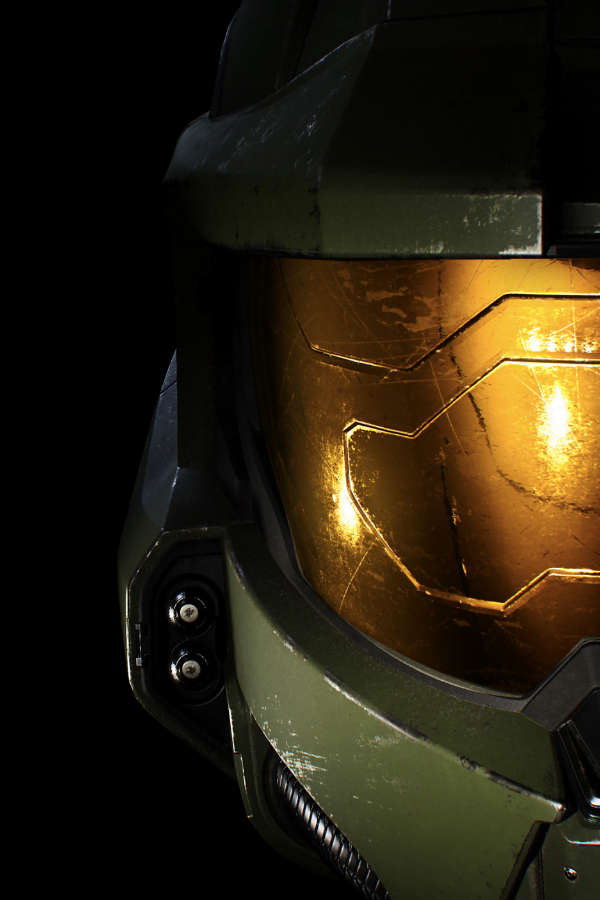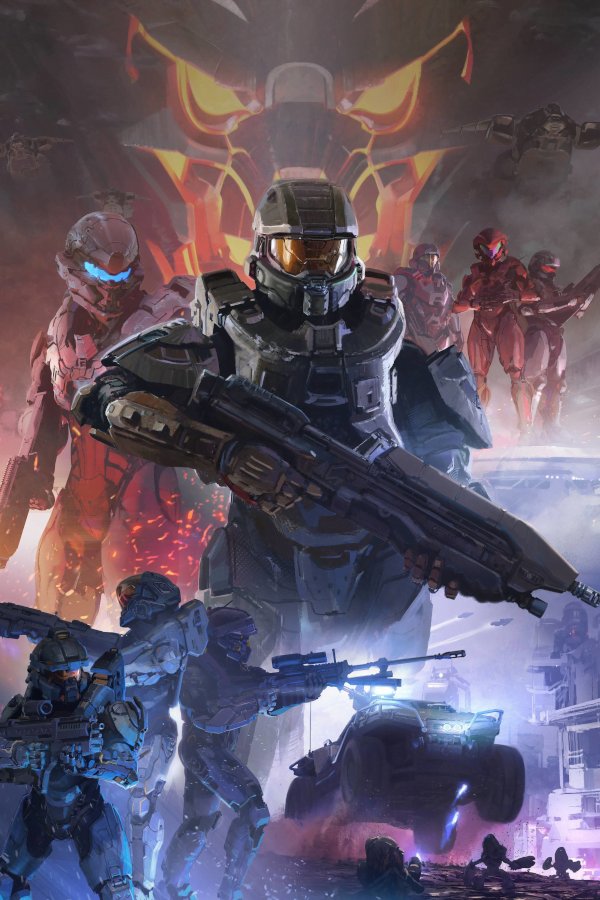The Case for Sunsetting Master Chief so that Halo Can Rise by The Black Viking

A revolution could be brewing in the dimly lit corridors of 343 Industries, where the future of one of gaming’s most iconic franchises is painstakingly crafted. The murmur of innovation should echo through the halls as developers and designers contemplate a bold move—shifting the spotlight from the legendary Master Chief to a new era of customizable Spartans. As 343 works on the next installment, titled Halo 7, this potential shift could breathe new life into the franchise and recapture its former glory.
The Legacy of Master Chief
Master Chief, the stoic and near-mythical figure who has carried the weight of the Halo series on his broad, armored shoulders, is synonymous with the franchise. Since his debut in 2001, John-117 has been the silent guardian of humanity, a beacon of hope against the Covenant and the Flood. His green visor has become an emblem of resilience and strength, yet beneath that iconic helmet lies a character shrouded in mystery and minimalism.
For over two decades, Master Chief’s silent demeanor and unwavering determination have endeared him to millions of fans worldwide. Though his story is sparse in personal details, it is rich in heroic deeds and legendary battles. The Chief’s stoic nature has allowed players to project their emotions and motivations onto him, creating a unique bond between the player and the protagonist.

However, as the gaming industry evolves, so do the expectations of its audience. Modern gamers crave more profound character development and more immersive storytelling. In an era where characters like Nathan Drake, Kratos, and Lara Croft captivate audiences with their complex personalities and evolving narratives, Master Chief’s lack of emotional depth stands out.
The Halo TV series attempted to address this by giving Master Chief more personality and character development, a move that drew mixed reactions. While some appreciated the deeper exploration of John-117’s psyche, die-hard fans often viewed it as a departure from the character they revered. This controversy highlights the challenges 343 faces in balancing character development with fan expectations.
The challenge lies in honoring Master Chief’s legacy while embracing the potential of more personalized and dynamic storytelling. As we delve into the potential of bespoke Spartans, it’s essential to consider this beloved franchise’s history and future.
The Rise of Customization in Gaming
As the gaming industry strides forward, the demand for personalization and player agency has remained unchanged. Titles like Skyrim, Baldur’s Gate, Starfield, Mass Effect, and Cyberpunk 2077 have set new standards for character customization, allowing players to sculpt their avatars and narratives to reflect their individual identities. This trend signifies a shift towards more immersive and personalized gaming experiences, where players feel a stronger connection to their characters and stories.
Customization is more than a cosmetic feature; it’s about ownership. Players today want to see themselves in their games and feel their journey is unique. This sentiment is echoed across the industry, where the ability to create and control one’s character enhances the overall gaming experience.
Customization goes beyond mere appearance. It encompasses the character’s skills, abilities, and even moral choices, allowing players to shape their avatar’s destiny. This level of control fosters a deeper emotional investment in the game, as players feel a greater sense of agency and involvement in the narrative.
In the context of Halo, introducing tailorable Spartans could revolutionize how players interact with the game. By allowing players to create their own Spartan, 343 Industries could offer a more personalized and engaging experience, catering to a diverse audience with varying preferences and playstyles.
Furthermore, customizable characters can lead to more dynamic and replayable content. Different builds, abilities, and story paths can provide a fresh experience with each playthrough, keeping the game relevant and exciting for longer. This approach aligns with the current trends in the industry, where longevity and replayability are critical factors in a game’s success.
The rise of adjustable gaming experiences is not just a fad; it reflects players’ changing expectations. As we move forward, the ability to personalize one’s gaming experience will continue to play a crucial role in the industry’s evolution.

The Potential for YOUR OWN Spartans
Imagine stepping into the boots of a Spartan whose story you have crafted from the ground up—a character with a background, personality, and appearance molded by your choices. This vision holds the promise of deeper engagement and a more personalized connection to the Halo universe. Bespoke Spartans could offer players a unique sense of ownership and immersion, making their journey through the galaxy even more compelling.
A customizable Spartan would allow players to explore different aspects of the Halo universe from a fresh perspective. Players could choose their Spartan’s origin, alignments, and motivations, leading to a more personalized narrative. This level of customization could also introduce new gameplay mechanics and challenges tailored to the player’s choices and character build.
In addition, these Spartans could foster a stronger sense of community within the Halo player base. Players could share their unique characters and stories, creating a rich tapestry of diverse experiences and perspectives. This communal aspect could enhance player engagement and loyalty as players feel more connected to their characters and the broader Halo community.
Introducing your own Spartans could pave the way for more dynamic and branching storylines. The game’s narrative could adapt to the player’s choices, offering different outcomes and experiences based on their character’s decisions. This approach could add depth and complexity to the Halo universe, making each playthrough a unique and personal adventure.
This way forward could significantly enhance the co-op campaign experience. Each player bringing their unique Spartan into the game would add a layer of personal investment and teamwork, making the narrative feel more inclusive and engaging. This could lead to a more cohesive and enriched multiplayer environment, where each player’s story and abilities contribute to the group’s success.
To satisfy both hardcore fans and new players, Master Chief could still play a pivotal role in the narrative. He could serve as a mentor to your Spartan, guiding them through the challenges and providing the wisdom of his experience. This approach would maintain the connection to the iconic character while allowing new heroes to rise.
Balancing Legacy and Innovation

Transitioning from the revered Master Chief to customizable Spartans is challenging. The risk of alienating a devoted fanbase looms large, and weaving a cohesive narrative with variable protagonists is daunting. Yet, the potential rewards are equally significant. Balancing the franchise’s rich legacy with innovative gameplay and storytelling is a delicate but necessary endeavor.
The goal is not to replace Master Chief but to evolve the franchise. It’s about giving players more ways to connect with the Halo universe. There’s room for both the iconic hero and new, personalized experiences. This dual approach could satisfy longtime fans while attracting new players seeking a more tailored gaming experience.
One of the main concerns is maintaining the integrity of Halo’s core story and themes. Master Chief’s journey has been a central pillar of the series, and any shift away from this iconic character must be handled with care. However, by incorporating customizable Spartans, 343 Industries can explore new stories and perspectives within the same universe, enriching the overall narrative.
Balancing tradition and innovation also involves addressing technical and artistic challenges. Creating a customizable character system that fits seamlessly into the Halo universe requires careful planning and execution. The development team must navigate a complex web of considerations, from ensuring diverse and meaningful customization options to integrating these characters into the existing lore.
Community feedback will play a crucial role in this transition. Engaging with the fanbase, gathering input, and addressing concerns transparently can help ease the shift and build excitement for the new direction. Open communication and iterative development processes can foster collaboration between the developers and the community, ensuring that the final product resonates with players.
Ultimately, the goal is to expand the Halo experience while keeping sight of what makes it unique. By carefully balancing legacy and innovation, 343 Industries can create a more prosperous, diverse Halo universe that honors its past while boldly stepping into the future.
Community and Market Insights
The Halo community, known for its passionate and vocal nature, has mixed reactions to customizable characters. Forums and social media are rife with debates, with some fans embracing the potential for new stories and others clinging to the familiarity of Master Chief. This spectrum of opinions reflects players’ deep connection with the franchise and its protagonist.
Market trends, however, paint a compelling picture. Games with robust options consistently show higher player retention and engagement rates. Titles like The Fallout Series, Destiny, and Elden Ring have demonstrated the appeal of personalized characters and narratives. These games have succeeded commercially and garnered critical acclaim for their immersive worlds and player-driven stories.
Customization is a powerful tool for player engagement. It’s clear how it can transform a game, making it more personal and replayable. The key is implementing it in a way that feels authentic to the Halo universe.
Community feedback will be crucial in shaping the future of customizable Spartans. Engaging with the fanbase through surveys, beta tests, and forums can provide valuable insights and help address potential concerns. By involving the community in the development process, 343 Industries can create a sense of ownership and investment among players.
The financial and creative incentives for 343 Industries to explore this path are clear. This strategy can attract a broader audience, including players who may have yet to be traditionally interested in Halo. This expanded appeal can drive sales and increase the franchise’s longevity, ensuring that Halo remains a cornerstone of the gaming industry.
Analyzing community and market insights reveals a promising future for bespoke Spartans. By carefully considering player feedback and industry trends, 343 Industries can successfully navigate this transition, delivering a fresh and engaging Halo experience that honors its legacy.

Conclusion
As the sun sets over the Seattle skyline, the future of Halo glows with the promise of possibility. Master Chief, the venerable warrior, will always hold a place in the annals of gaming history. Yet, the call for evolution resounds louder with each passing day. These Spartans could herald a new dawn for the franchise, inviting players to forge their own legends in the vast expanse of the Halo universe.
By allowing players to create their own heroes, 343 Industries can foster a deeper connection between players and the game, enhancing engagement and replayability. This approach not only aligns with current industry trends but also addresses the evolving expectations of modern gamers.
As 343 Industries embarks on its journey of developing Halo 7, the balance between legacy and innovation will be essential. Maintaining the core elements defining Halo while embracing new possibilities can create a more prosperous, diverse universe. This evolution has the potential to attract new players while retaining the loyalty of longtime fans.

I must say that I agree I felt the connection to the franchise very much but for some reason now I do want more of a connection to the Halo franchise. Partly why I enjoyed the show they gave him depth and not as emotionally incompetent. Trying to go back and learn the lore is a little difficult as well because of the lack of emotional connections. That conflict he faces in the show makes me feel empathy for him as well as the others he interacts with. Amazing article I’ll be sure to keep an eye out for more
Great article. I personally find my self falling off quickly from games where I can’t create my own character. Sometimes even skipping them all together. I think Destiny’s customization of your appearance, class, and shaders is a huge reason for the games prolonged popularity. Individualism is a staple of modern society that the Halo series should lean into.
117 for life. Nice take Black Viking